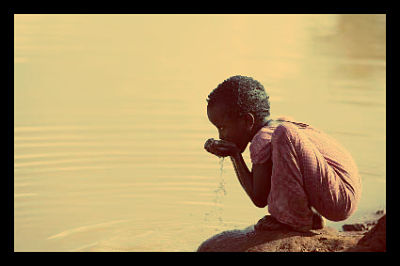They are Becoming Skin and Bones
"We can’t afford to eat three times a day. My newborn baby cries for milk but I cannot produce enough breast milk - maybe because I have not eaten enough over the past weeks”. These words come straight from 23-year old Rayhana, a mother of four children living in a refugee camp in Bangladesh. She is one of 700,000 refugees in Bangladesh alone. She says that she had such a happy life before she was forced to flee because of violence. Now she has nothing. (World Vision)
Taking a look at Maslow’s hierarchy of needs, the prominent tiers are food/water/shelter and safety/protection. For any person to thrive, these two tiers must be met before anyone can progress towards their goals and to satisfy their other desires. There are basics needs not being met in refugee camps. These important necessities are being neglected leading to disease, rape, and death. These people, fearing for their lives, leave their respective countries looking for solace and care. There must be something done. The three main areas that need the most help in refugee camps are food/water, safety/shelter, and good hygiene. We propose that non profits and citizens should step up to the plate to help these people. This article will specifically discuss food and water shortages in refugee camps.
Everyone should have access to clean water and enough food. Think about how much food you have eaten in the last day. I am willing to bet that it is about as much food as refugees get in a week-if they are lucky. There are many problems that come with not having enough food and water. If the refugees have food, it probably isn’t very nutrient rich. As seen in the picture, a normal meal might be some nutrient free tea and bread. This causes vitamin and mineral deficiencies which can cause serious disease such as rickets, anemia,scurvy, Wernicke-Korsakoff syndrome, pellagra, osteoporosis, and birth defects to babies born from malnourished mothers. Not only is the food without nutrients, there simply isn't enough of it. People are starving to death while we get more than enough.
Clean water is hard to come by in refugee camps. Most families only get one clean bottle of water per day. Other water in the camps might be contaminated with sewage and trash. Without adequate water, people cannot survive. Dirty water can cause a host of diseases such as cholera, Guinea worm disease, typhoid, and dysentery.
 |
| Image 4 |
Children are malnourished and dying. Without adequate food and water, people do not have enough energy to walk the distance they need to get more food or water which only makes the problem worse. What can we do about it? First of all we can provide more rations to those in need. Non profits and locals need to donate more food and money to feed these people. If that is not possible, make sure that the rations they do receive are fortified with nutrients so they get adequate nutrition (UGHE). Also, non profits could work to figure out a water treatment system and increase the required amount of chlorination that needs to be in their water to ensure safety. Another way we could help long term would be to teach them and help them to build gardens that will be sustainable in their environment (UNHCR). If they could learn to grow some of their own food, especially fruits and vegetables, they will be able to get the nutrients they need. We could help install wells, rainwater harvesting, and humidity harvesting to make up for the shortage of water in these camps (Ecomena). While it may not seem like our problem, we are all human and understand hunger and thirst.
We are aware there is lots of controversy over providing too much help to these refugees. Some say that it is not our problem or that they should fend for themselves. The fact of the matter is that these people had to flee their homes with absolutely nothing. They were not planning to leave and were not prepared to do so. Isn’t it our moral obligation as humans to help one another in such a dire situation? Some would still say no. However, if you are against providing aid to these refugees, then they will eventually keep relocating until they find better living conditions-which may include your home town. So if you are really so against refugees, help them out so they stay far away from your country.
With all of this being said, we want to call everyone to action to help these poor people. We believe that non profit organizations can step up and provide aid in any way they can. We believe anyone can make a difference, whether that be through going to these camps in person to help, donating materials, or even just donating money to an organization that helps refugees. They need our help. They are suffering and dying. Wouldn’t you want the same kindness if it was you in this situation?


Comments
Post a Comment